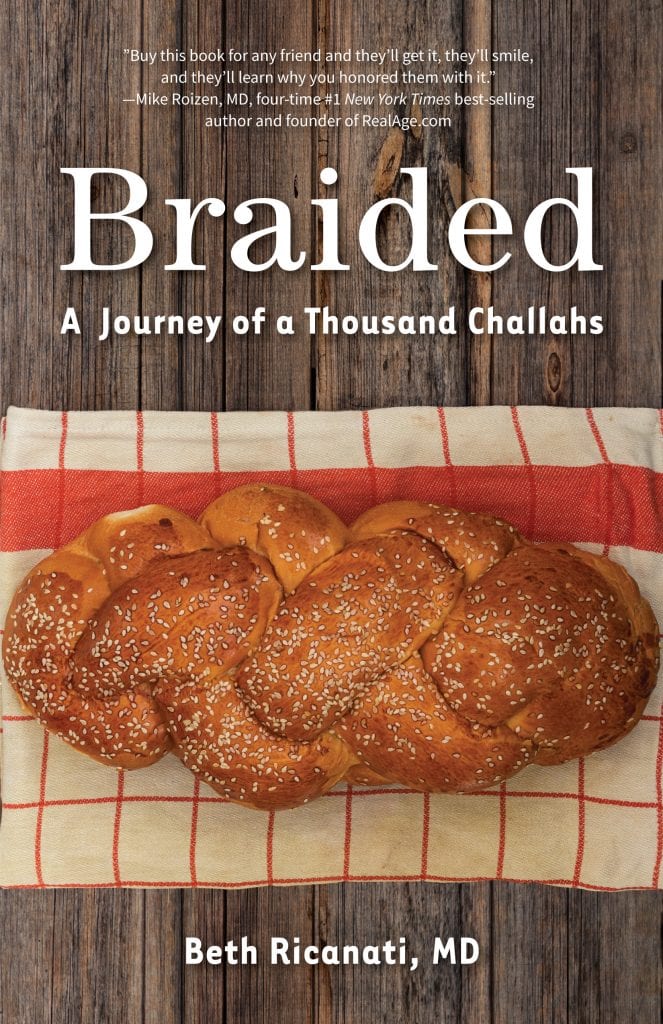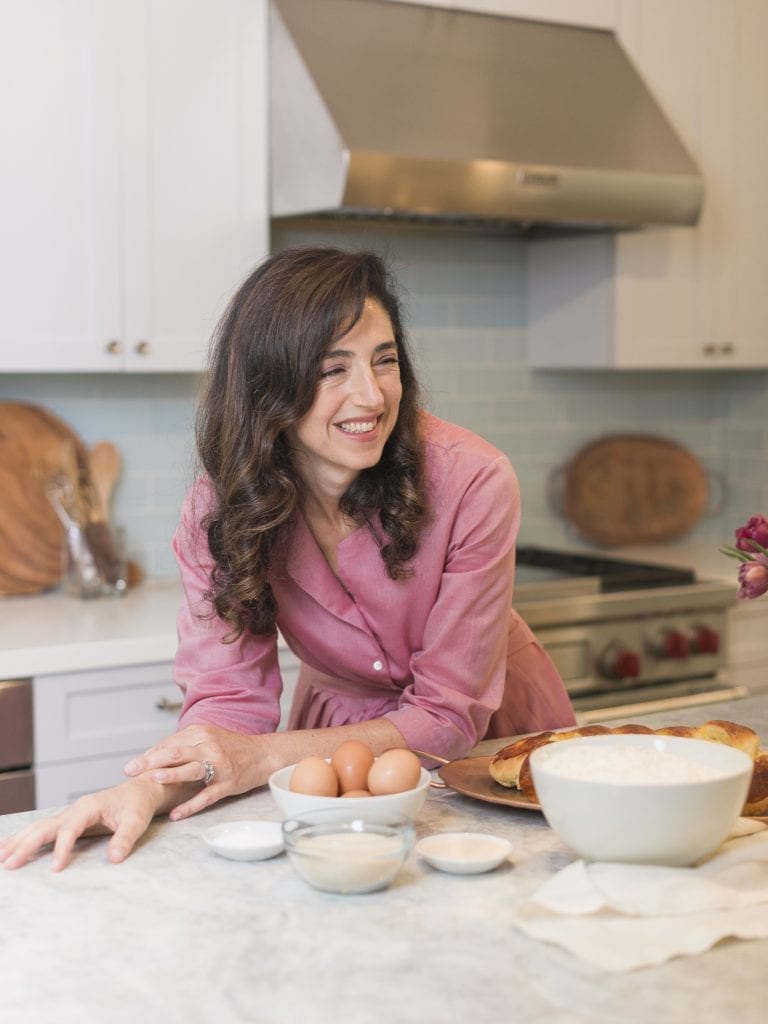Ten years ago, Beth Ricanati, M.D., found herself running in place in her bathroom late at night (while sorting the family mail) to get her 10,000 steps in for the day. She describes herself at the time as a “frantic, frenetic busy mom-wife-physician hyphenate” trying to do it all. It wasn’t working.
Then Ricanati, who practiced at New York-Presbyterian Hospital and the Cleveland Clinic before moving to L.A., started baking challah. The experience changed her life and health, and her memoir, “Braided: A Journey of a Thousand Challahs,” will give you food for thought.
Yes, there’s a recipe for the braided bread, which Jewish families traditionally have as part of the Friday Shabbat dinner. But this isn’t just a cookbook and it isn’t just for Jewish people. “It’s a book about a journey, about finding meaning, about so many other things,” Ricanati says. “The icing on the cake is that, sure, if you want to try and make challah, that’s awesome.”
Following the six-ingredient recipe each Friday taught Ricanati lessons that began to permeate her life. The weekly reminder to be patient was especially helpful. “You have to wait at the beginning of the recipe to proof the yeast. And once you’ve made the dough, you have to wait for the dough to rise,” she says. “Waiting was not part of my vernacular.” Now, stuck in traffic or a slow checkout line at the grocery store, she’ll find herself thinking, You just have to wait, Beth. It’s OK. You just have to wait. So much better for the blood pressure.
Another lesson: being present. “When you’re standing at a kitchen counter and your hands are in a bowl of dough, you’re not answering a text, you’re not emailing, you’re not folding laundry,” Ricanati says. “You’re there. It’s so great to have the opportunity to just stop.”
This fits nicely with Ricanati’s overall, gentler approach to health. “I think we all need to be aware of our behaviors and do them with intention, and I had lost that when I was on that hamster wheel trying to be and do everything,” she says. “I am much more aware now of my actions, and I think I’m better off for it.” Instead of running in place in your bathroom, park a little farther away from your destination, take the stairs, pay attention to what you eat. “Have breakfast, and you’ve just done such a great thing for yourself,” Ricanati says. “Do a little yoga or knead some dough and you’ve done so much for yourself.”
And not just for yourself. When you make challah, you set an intention to make the bread in merit of someone else. Ricanati has done this for a child facing a tough test, a friend with an illness and many others, keeping someone in mind each week as she bakes. “It’s such an opportunity to reflect on someone,” she says. Her baking has also brought the family (and sometimes a friend or two) together regularly for Friday dinner. “It’s really become a terrific touchpoint and anchor in our week.”
Baking isn’t the only way to reap these benefits, though. Ricanati says that her mother gardens, and she’s recently met people who are into salsa dancing and knitting. The point is to have something that you do with intention, with focus. “It’s an action that is more than the action itself,” Ricanati says. “In my ideal world, everybody would have a meaningful ritual.” Step on the challah path with Ricanati and you’ll have a delicious one as well. Get more insight from Ricanati on her website at housecallsforwellness.com.
























